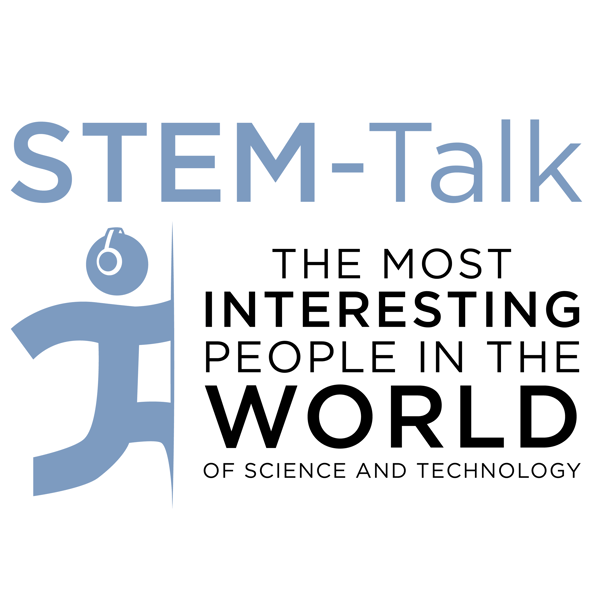Episode 99 : Dave Rabin talks about how psychedelics and wearable devices can help improve people’s lives
STEM-Talk
Dawn Kernagis and Ken Ford
4.6 • 694 Ratings
🗓️ 26 November 2019
⏱️ 82 minutes
🧾️ Download transcript
Summary
Transcript
Click on a timestamp to play from that location
| 0:00.0 | Welcome to STEM Talk. |
| 0:01.1 | Stem Talk. |
| 0:02.0 | Stem Talk. |
| 0:03.0 | Stem Talk. |
| 0:04.0 | Stem Talk, where we introduce you to fascinating people who passionately inhabit the scientific and technical frontiers of our society. |
| 0:14.0 | Hi, I'm your host, Don Cornagus, and joining me to introduce today's podcast as a man behind the curtain, Dr. Ken Ford, IHMC's director and chairman of |
| 0:21.4 | the double secret selection committee that selects all the guests who appear on STEM talk. |
| 0:25.0 | Hi, Don. Great to be here. |
| 0:26.9 | So our guest today is Dr. David Rabin, the chief innovation officer and co-founder of Apollo |
| 0:31.4 | neuroscience. And he's also the co-inventor of Apollo, which is a wearable device designed |
| 0:36.4 | to improve focus, sleep, and access |
| 0:38.5 | to meditative states by gently delivering layered vibrations to the skin. |
| 0:42.9 | So Dave is also a board-certified psychiatrists and translational neuroscientists, who for the past |
| 0:47.7 | decade has been studying resilience and the impact of chronic stress on humans. |
| 0:51.4 | As we will discuss, Dave has, among many other accomplishments, played a key role in organizing |
| 0:57.5 | the world's largest controlled study of psychedelic medicines in collaboration, of course, |
| 1:03.0 | with colleagues around the world. |
| 1:04.7 | Although we will be discussing various psychedelic substances, please note that we are not |
| 1:09.8 | advocating for their use or the use of any illegal substance. |
| 1:13.6 | Absolutely. And before we get to today's interview with Dave, we have some housekeeping to take care of. |
| 1:18.6 | First, we really appreciate all of you who have subscribed to STEM Talk, and we are especially appreciative of all the wonderful five-star reviews. |
| 1:24.6 | As always, the Double secret selection committee has been |
... |
Please login to see the full transcript.
Disclaimer: The podcast and artwork embedded on this page are from Dawn Kernagis and Ken Ford, and are the property of its owner and not affiliated with or endorsed by Tapesearch.
Generated transcripts are the property of Dawn Kernagis and Ken Ford and are distributed freely under the Fair Use doctrine. Transcripts generated by Tapesearch are not guaranteed to be accurate.
Copyright © Tapesearch 2025.

